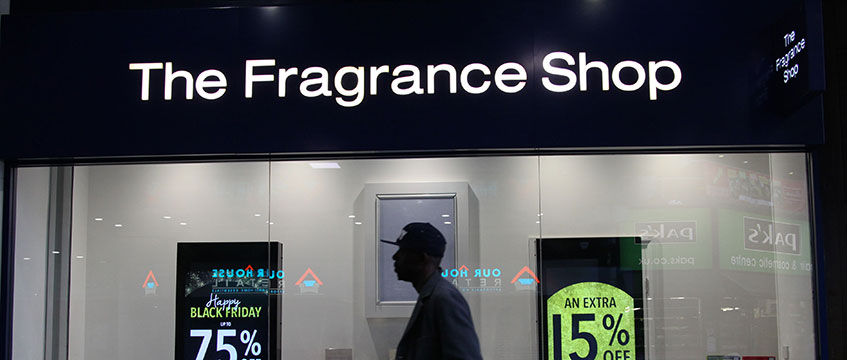Westfield High Court ruling offers hope for landlords
A High Court ruling in favour of Westfield London’s landlords has placed a spotlight on the government’s commercial rents consultation, as the industry highlights that prolonged restrictions will create even more legal claims to add to the “thousands” that already exist.
In what is thought to be the first High Court decision relating to a Covid rent arrears claim, Westfield London’s owners won a ruling that its tenant The Fragrance Shop must make up unpaid rents and service charges accrued during the Covid-19 pandemic.
Chief Master Marsh at the High Court granted fund manager Commerz Real – which owns the centre in a joint venture with Unibail-Rodamco-Westfield – summary judgment in its claim against the perfume retail chain, TFS Stores, without the need for a full trial. The landlords were owed more than £160,000.
A High Court ruling in favour of Westfield London’s landlords has placed a spotlight on the government’s commercial rents consultation, as the industry highlights that prolonged restrictions will create even more legal claims to add to the “thousands” that already exist.
In what is thought to be the first High Court decision relating to a Covid rent arrears claim, Westfield London’s owners won a ruling that its tenant The Fragrance Shop must make up unpaid rents and service charges accrued during the Covid-19 pandemic.
Chief Master Marsh at the High Court granted fund manager Commerz Real – which owns the centre in a joint venture with Unibail-Rodamco-Westfield – summary judgment in its claim against the perfume retail chain, TFS Stores, without the need for a full trial. The landlords were owed more than £160,000.
Scott Parsons, chief operating officer for the UK at URW, told EG that despite putting a number of support measures in place for tenants during the pandemic, rent collection “remains an issue” and that the government moratorium is “not helping as it encourages ‘can pay, won’t pay’ behaviour”.
“Ultimately our strategy is to work with those who engage with us to reach a fair and positive outcome for all and for those who refuse to engage, we have been forced to take stronger action,” said Parsons.
“We welcome the outcome of this judgement as we move towards a recovery for the industry which saw more than 1.2m customers visit Westfield London and Westfield Stratford City for the reopening week – hugely positive news for retailers and landlords alike.”
The decision – the first of many due in the coming weeks – has been widely regarded as a welcome step in the right direction for landlords, but a setback for some retailers as their unpaid rents stack up.
The Fragrance Shop had argued that insurance provisions meant the landlords could claim payments back from the insurers – a topic that is at the heart of many similar conflicts between landlords and tenants.
However, the judge ruled there was no obligation on a landlord to insure for tenants’ losses to their business, after assessing the lease terms and the landlords’ insurance policy.
Rebecca Campbell, partner at Bryan Cave Leighton Paisner, said: “It’s a welcome decision for landlords. The takeaway message is that tenants are still obliged to pay rent, and the court will not tolerate what it perceives to be weak arguments.”
However, lawyers have highlighted that while landlords will find clarity on some of these aspects helpful, there are other ongoing cases where the tenant is advancing substantive arguments.
“It is a case of ‘watch this space’, but [this summary judgment] is a helpful decision for landlords,” said Campbell. “It reiterated the code of conduct is a sensible tool for all parties… but it did clarify that the code does not change legal obligations in leases, which I think has been the missing piece in the conversation.”
According to Campbell, the message for tenants is that it “is worth engaging in the code of conduct” as a “sensible tool to try and avoid expensive legal proceedings” – however, it remains the case that it is still open for landlords to sue for rent arrears, which is still the “only real remedy” they have for pursuing tenants.
The judgment therefore serves as a timely reminder of the importance of the government’s call for evidence, which was launched earlier this month to determine its next steps after the commercial evictions moratorium ends in June.
“We really do need the call to evidence to deliver something that’s going to help tackle this crisis,” said Campbell. “There are thousands of these claims. Given [this case was] fact-specific, I don’t think this decision alone will be the solution that parties are generally looking for.”
Donald Lambert, head of real estate litigation at Pennington Manches Cooper, said: “The question is: what’s around the corner?
“It’s a question of whether the government looks at some method of tapering off in June. If the restrictions are extended further, this decision might prompt a fresh round of litigation.”
He added: “As appears in this case, the cases that have caused the most aggravation are those where there has been a lack of engagement from tenants. This will be an encouragement to some landlords who have been wondering whether it is worth taking [legal action].”
In a separate case, proceedings brought against Virgin Active Health Clubs for arrears totalling more than £900,000 at its Canary Wharf premises at Westferry Circus, E1, have been temporarily halted, pending the outcome of the court process relating to the fitness chain’s restructuring plan.
Additional reporting by Jess Harrold
To send feedback, e-mail pui-guan.man@egi.co.uk or tweet @PuiGuanM or @estatesgazette
Photo © Dinendra Haria/Shutterstock











